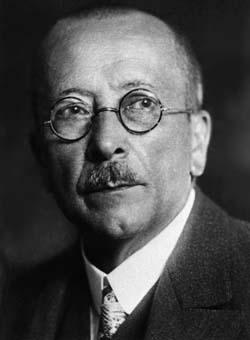
For his role in revolutionizing organic chemistry, Friderik Pregl became the first Slovenian to win the Nobel Prize. But because he had to carry out his scientific work outside of what is now Slovenia, many history books long considered him solely an Austrian Nobel laureate.
In 1869, Friderik Pregl was born in Ljubljana to a Slovenian father and a German mother. His father worked in a bank, and the young Pregl was able to enroll in Ljubljana’s prestigious Classical High School, where all the instruction was conducted in German. Pregl did not excel in his studies, but his grades were sufficient for him to pursue higher education. At the time, Ljubljana had no university, and many of Slovenia’s brightest went off to study in other towns of the Hapsburg Empire. Pregl enrolled at the University of Graz.
It soon became evident that Pregl was a natural scholar. He became an assistant professor even before he graduated from medical school, and completing his studies, he spent several years studying chemistry. He conducted postgraduate research in cities throughout Austria-Hungary and Germany, working with both past and future Nobel laureates.
By the beginning of the 20th century, Pregl had emerged as a leading expert for organic chemistry. He worked at the Institute for Medical Chemistry in Graz and the University of Innsbruck.
It was in Innsbruck that he encountered a persistent problem when researching bile acid: He was not able to obtain enough of the acid for his research. In response, he developed a brand-new method that drastically reduced the amount of bile acid - or other organic compounds - needed for elemental analysis. In some cases, the new process reduced the amount of a substance needed to carry out detailed analysis a hundred-fold. Pregl’s new method also took considerably less time. His discovery opened the door to groundbreaking research that had previously been very difficult to carry out.
For his discovery, Pregl was awarded the Nobel Prize for Chemistry in 1923. In the years that followed, leading chemists from around the world came to Austria in order to study under his mentorship. The newly created University of Ljubljana, founded just after World War I, even invited Pregl to teach in his hometown. The move would have brought great prestige to the nascent university, but Pregl politely declined the offer. Instead, he donated valuable laboratory equipment to the university.
After Pregl’s death in 1930, a number streets and squares in both Slovenia and Austria were named in his honor. Often considered an Austrian Nobel laureate, Pregl is increasingly recognized as a scientific giant in his Slovenian homeland. Each year, the best and the brightest young chemists in Slovenia - those wishing to follow Pregl’s footsteps - are awarded prizes bearing his name.
Pregl remains the only individual winner of the Nobel Prize from Slovenia. In 2007, however, a Slovenian climate research scientist, Lučka Kajfež Bogataj, was also honored by the Nobel Committee. That year, the Nobel Peace Prize was awarded to the Intergovernmental Panel on Climate Change, of which she was a member. Eighty-four years after Pregl’s remarkable achievement, the Nobel Prize Committee once again recognized a Slovenian scientist who changed the way we see our world.

































































